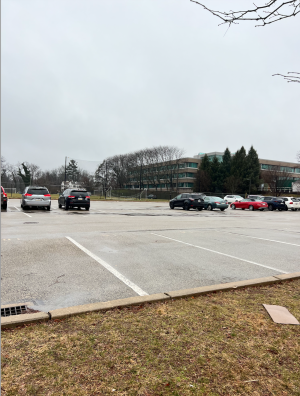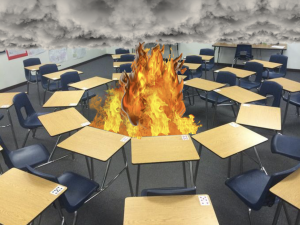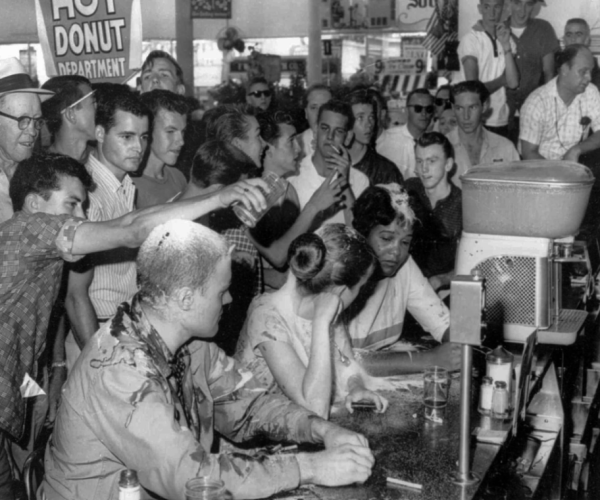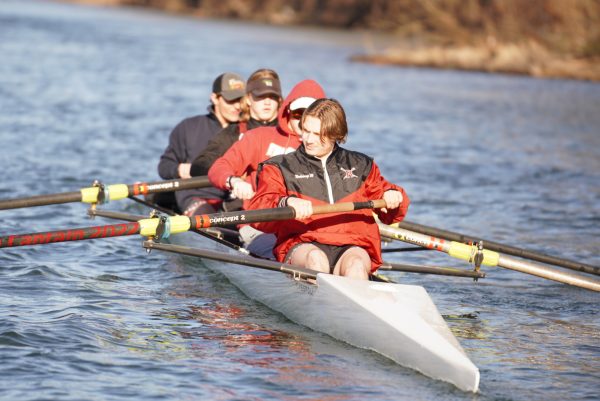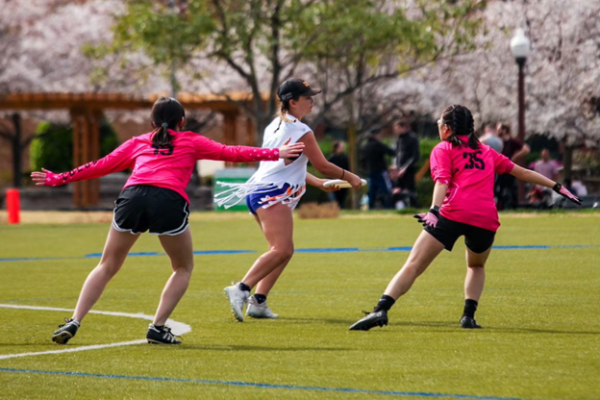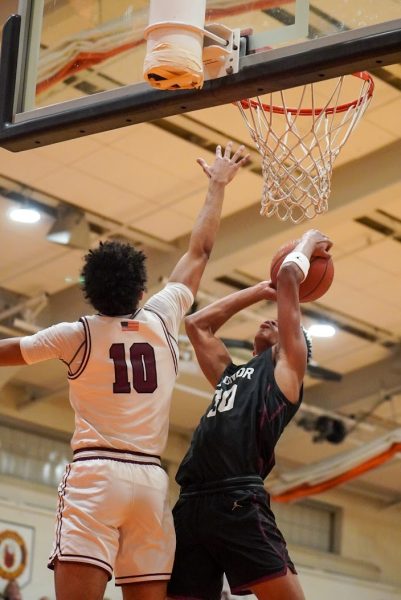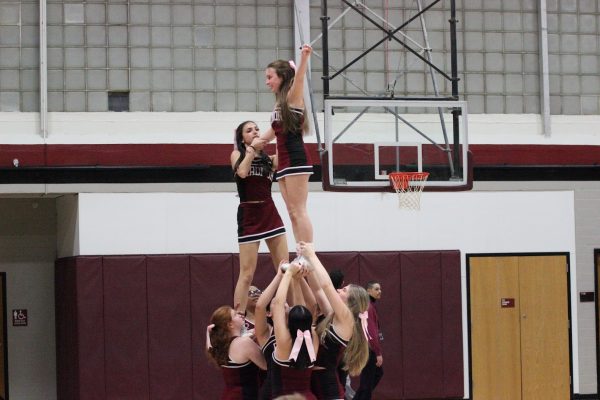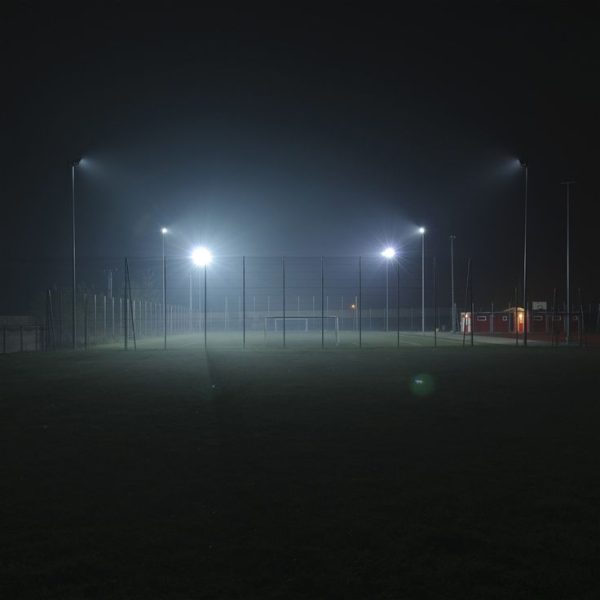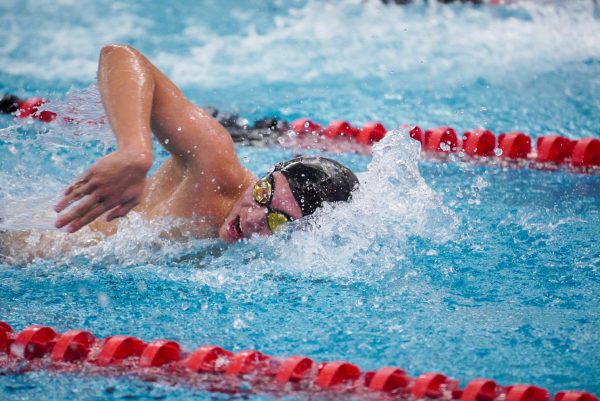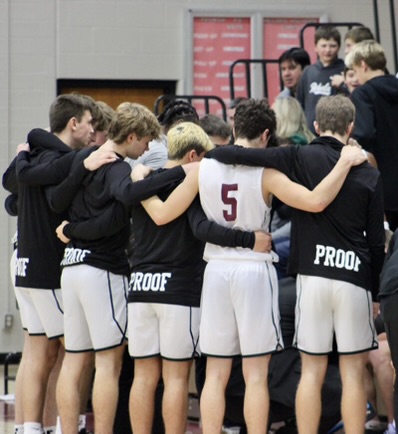The FBI Probe and Its Impact On College Sports
March 15, 2018
College athletics, whether it be football, basketball, or any other minor sport, have been a seismic pillar of the American sports culture and legacy. Unlike Europe, athletic talent isn’t fostered by club sponsored academies like the ones that dominate German and English soccer circuits, but by long standing academic institutions and universities who can gain profit by running athletic programs with amateur talent. This system, of colleges and the NCAA utilizing scholarships to produce millions of dollars in revenue off of unpaid athletes, has worked for decades. Athletes are able to get first-rate educations from some of the best universities in the world for free, and all they have to do is play a sport. But as the years have passed, the games have become more complex, the TV deals more exuberant, and the recruiting more of a circus, the old system of college athletics may have run its course, and the FBI’s probe into corruption in College Basketball could totally deconstruct, and maybe even rebuild, college sports.
There has been major corruption and illegal recruiting stories in the past. The first seismic set of illegal actions taken by a program in recruiting was the Southern Methodist University’s “Pony Excess” football bribery and payment system in the 1980s. Several SMU boosters were paying notable SMU stars with cash benefits, as coaches and officials in the SMU program actively ignoring and covering up the violations. The “slush fund” that the booster used from the late 1970s to the early 80s totaled around $60,000, paying players around 400 dollars per month. The NCAA put the hammer down on SMU, dishing out the vaunted “death penalty” to the SMU football program in 1987, ending the program for a dreaded two years. While the SMU case was a landmark event in college sports, the FBI’s deep and detailed investigation into corruption in modern day college hoops could make SMU scandal look like small potatoes.
In the few details that were released on Friday by Yahoo! Sports and ESPN, major programs and legendary coaches could be in hot water due to the FBI’s probe. Among the 20 schools named in the report are prestigious teams such as Duke, Michigan State, Kentucky, North Carolina, Arizona, and Kansas. The report revolves around sport agency ASM and head agents Andy Miller and Christian Dawkins. The FBI report allegedly claims that ASM, Miller, and Dawkins would provide funds to players to influence them to attend certain universities, and once the players were at the school, the coaches would try to coax the players to sign up with the agency and financial management wing of the company once they went pro. Reportedly, ASM handed out “loans” to several major stars, both past and present, and these “loans” could cast a dark cloud on the upcoming NCAA Tournament in March, and the NCAA as a whole as well. Some of the current players named in the report include several superstars who are on title contenders, as Duke’s Wendell Carter, Michigan State’s Miles Bridges, and Alabama’s Collin Sexton are listed as players who received illegal benefits and cash from ASM. Former college stars Dennis Smith Jr. and Markelle Fultz are also listed in the report, as the FBI claims that Smith received a loan of $70,000 from ASM, and Fultz a loan of $10,000 dollars to ensure his commitment to Washington University.
The “smoking gun” of this whole FBI probe is the 3,000 hours of Christian Wilkins phone records and wiretaps. In the 3,000 hours of conversations that the FBI tapped, the most notable of them were the calls to Arizona Head Coach Sean Miller. The calls largely center around the recruitment of blue chip freshman DeAndre Ayton. Reportedly, Miller gives the go ahead for Wilkins to extend a $100,000 bribe to Ayton to secure his commitment to Arizona. Now, there is no doubt that there is a clear connection between ASM and the schools listed in the report.
Obviously, the FBI report raises several immediate question, the first being the eligibility of several players heading into March Madness. If the NCAA decides to deal with the matter immediately and declare those listed in the report ineligible, than the controversy will only grow, distracting from the hugely popular tournament. These players, kids, don’t deserve to get a once in a lifetime opportunity ripped away from them because of mistakes made by those who are supposed to help and protect the kids. The system and greed from those in power in the collegiate system failed these kids, and the NCAA owes it to the players and the fans to fix this inherently broken system, and to let the players play. In some ways, it was the NCAA’s lack of action and accountability to police and guard themselves and the players that created the crises it finds itself in right now
But more importantly, the FBI Probe has the ultimate potential to create a lasting ripple effect as well. If more details are revealed, and the public finds out that Hall of Fame coaches Mike Krzyzewski, Tom Izzo, Roy Williams, and John Calipari were either directly or indirectly fostering a state of corruption in college basketball, than we could see the NCAA come down hard on sanctions for recruiting violations. While some may scoff at the idea of such a mythic and upstanding figure like Coach K being involved in such a heinous act of cover up, the Miller case makes the accusation viable. While Sean Miller isn’t the even in the same tier as Coach K, he is still a great coach, as he guided Arizona to three trips to the Elite EIght in his eight seasons at Arizona, and if he can go down in this case, no one is safe.
Only time will tell if the FBI makes any long lasting ripples though. The FBI investigation, while initially painful and damaging, can finally cause the NCAA to wake up and make some changes to the system, specifically in players compensation. For years, the debate over whether the NCAA and the institutions should pay its players has basically hit a stalemate. The Northwestern Football players attempting to unionize and the O’Bannon player likeness legal case, there has been a shift toward players finally getting some kind of compensation for providing their college’s millions of dollars of revenue. Many in the media, and some inside the system as well, have started to campaign for the paying of college athletes, and the FBI Probe gives those who want change to take place. If the NCAA, the colleges, and the athletic programs don’t want agencies to corrupt amateur athletes with bribes and benefits, maybe it’s time to start paying and supporting athletes who give up their bodies and time for their schools. There’s a storm brewing in college athletics, and hopefully people in power at the NCAA can use the FBI Probe as a source of progress, not devolution and a means to keep the status quo.

